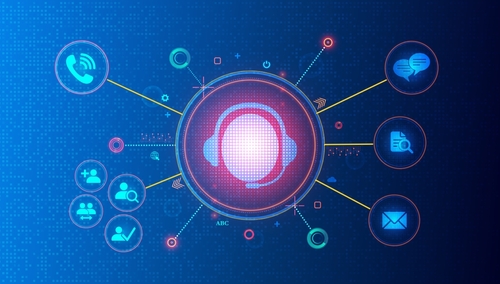The customer is king, so the saying goes. No matter how good the quality of your products or
services, it’s all for nothing if your customer service is lacking.
Unhappy, unsatisfied customers may not only never return, but spread word of mouth about their bad experience.
But fortunately, the inverse is also true – if your customer service excels, then your reputation is likely to soar, and business with it.
To this end, it’s crucial for most modern businesses to have some customer support tools at
their disposal – but which ones should you use, and what exactly do they do? The two most
common tools on the market are the help desk and the client portal. We’ll go into their features, the differences between the two, and which one you should choose for your business.
What is a help desk?
First, let’s delve into the help desk. A help desk is a piece of software designed to maximise the efficiency and effectiveness of your customer service. It can either be hosted on-site or in the cloud, and most help desk software suites are highly customisable.
The main purpose of help desk software is to track, log, and measure every customer interaction, from common issues like returns and product queries to sophisticated tech support issues.
Common features of a help desk include:
● A ticketing system to take in customer requests or queries and turn them into tickets that
can be categorised, routed, tracked, and closed when the issue is resolved.
● Automation so simple requests can be handled automatically, without the need for
human input.
● Collaboration and communication tools
● Metrics to measure performance and identify any potential trouble spots.
In short, a help desk is there to make your customer service consistent, high quality, and
reliable.
What is a client portal?
However, it’s worth mentioning one other feature that often comes with help desk software: the customer portal. Simply put, a client portal is a collection of information (whether it’s a knowledge base, FAQ, a self-service portal, or all of the above) designed to let customers
resolve their own incidents and questions without involving human support staff.
Typical features of customer portal software include:
● AI-powered features, such as AI chatbot support agents or knowledge bases
● Customisation features so that the portal blends seamlessly with the rest of your website
● A community forum where customers can ask questions and even get support from
other customers
● Seamless escalation from self-service to service from a human agent or AI chatbot,
because sometimes self-service isn’t always the best solution to a problem.
One or both?
At the beginning of this article, we raised the question: which one of these tools should a
business use? The answer should not surprise you. Given that help desk software is there to
assist human agents in providing excellent customer support, and client portal software is there to help customers help themselves, the most obvious answer is to have both.
Fortunately, a lot of help desk software comes with client portal features included, so you don’t have to purchase two separate software suites to get the full range of functionality.
There’s another good reason for offering both to your customers: some customers, especially
younger ones, really like solving their problems on their own with self-service, whereas more
complex and technical issues often call for the expertise of a human agent.
Older clients or customers in particular may prefer communicating with a human to solving an issue themselves via a knowledge base. In some fields – finance, insurance, or healthcare, for example – having a client portal is almost mandatory, as self-service can play a big part in those industries.
What’s the ROI?
Finally, let’s talk about the return on investment for help desk and client portal software.
Properly implemented help desk and client portal software will almost certainly speed up your
response and resolution times – and with most customers now expecting quicker responses
than they did five years ago, that’s of crucial importance.
Automation features, smart routing, and personalised contextual support will bring you faster resolution and happier customers.
Omnichannel communication is another important benefit. Omnichannel support is just another way of saying your business can accept incoming customer requests via SMS, email, social media, web form, or any other number of communications channels.
The more ways a customer can reach you, the happier they’re going to be. When it comes to client portals, the immediate benefits should also be clear. A self-service portal takes pressure off your human agents by letting customers resolve issues without having to talk to another human being. This frees up your support staff to handle the more sophisticated problems and/or issues that require more nuance and a human touch to resolve properly.
If you don’t yet have a help desk or client portal set up for your business, the benefits are
numerous and the drawbacks few – you have nothing to lose.



